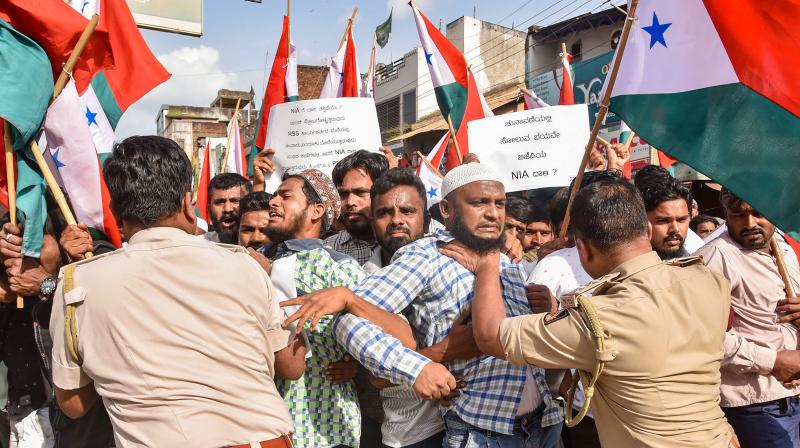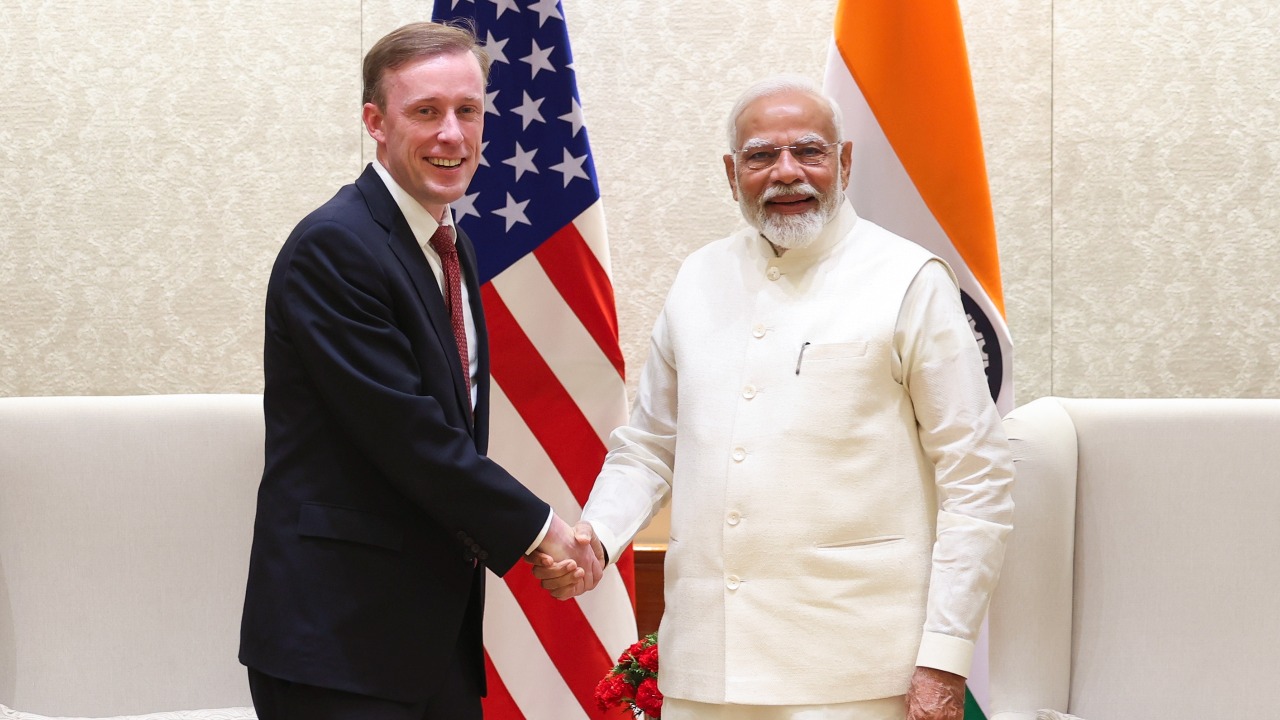Disrespect Towards the Indian Flag: A Growing Concern Amidst Recent Incidents

Dec 12, 2024
India has recently witnessed several incidents that have raised serious concerns regarding respect for the national flag, sparking public outrage and prompting strong actions by authorities and institutions. One of the most striking episodes occurred during a religious procession in Kota, Rajasthan. In this event, a modified version of the Indian national flag was displayed, adorned with a crescent and star alongside the Ashoka Chakra. The footage of this act spread rapidly across social media platforms, leading to widespread condemnation. The display of this altered flag angered many, who perceived it as a blatant disrespect to the national symbol. The local authorities reacted quickly by arresting three individuals allegedly involved. The incident also triggered protests, particularly from right-wing Hindu groups, who demanded strict accountability. Kota South MLA Sandeep Sharma condemned the act, stating that it transcended religious boundaries and called for stringent action to deter similar occurrences.
In a related and equally controversial move, a hospital in Kolkata announced it would no longer treat Bangladeshi patients. This decision came after reports of perceived insults to the Indian flag. Dr. Subhrangshu Bhakta, an official at JN Ray Hospital, stated that witnessing such disrespect to the Tricolor motivated the institution to take this stance. The announcement divided public opinion. While some lauded the decision as a firm assertion of national pride, others criticized it as discriminatory and potentially harmful to India’s image as a compassionate nation. The move underscored the intense emotions tied to the flag, with proponents arguing that national pride must take precedence over diplomatic or humanitarian concerns.
Further fueling the tension were images circulated on social media, allegedly showing students at Bangladesh University of Engineering and Technology (BUET) walking over an Indian flag placed at the campus gate. This act was widely perceived in India as a deliberate insult, further escalating public outrage. Many Indians saw this as not just disrespect but as an affront to the nation’s dignity and a deliberate provocation. Calls for accountability echoed across platforms, with demands for both legal and diplomatic measures to address the incident. The situation highlighted the sensitivity of national symbols and how easily they can become focal points for international tension.
India’s Prevention of Insults to National Honour Act, 1971, clearly outlines the legal repercussions for disrespecting the national flag, including imprisonment or fines. However, enforcing these laws becomes complicated when such acts occur outside Indian territory or involve foreign nationals. Despite these challenges, the law’s existence underscores the importance of protecting national symbols as a matter of honor and pride. These incidents point to a growing trend of heightened sensitivity around the Tricolor and what it represents. For many Indians, the flag is not merely a piece of fabric but a symbol of the country’s identity, unity, and sacrifices made during its struggle for independence.
The emotional reactions to these incidents reveal deeper narratives about nationalism and cultural identity in India. For some, these acts are isolated provocations that require strict legal responses to prevent recurrence. For others, they are part of a broader conversation about India’s relationships with its neighbors and the need to assert its national pride more forcefully. This growing sensitivity around national symbols is not unique to India but is reflective of a global trend where symbols of sovereignty and identity evoke strong emotional and political responses.
However, these incidents also underscore the need for a balanced approach. While taking legal or diplomatic action is necessary to uphold the dignity of national symbols, it is equally important to ensure that responses are proportionate and considerate of broader implications. Overreacting or adopting punitive measures without careful thought can lead to unintended consequences, such as straining diplomatic ties or fostering divisiveness within communities. As such, navigating these sensitive issues requires not only firmness but also a commitment to dialogue, understanding, and respect for diverse perspectives.
The recent events surrounding the Indian flag have sparked intense debates about what it means to respect national symbols in a globalized world. They have also highlighted the challenges of maintaining national pride in an era of rapid communication and cultural exchange, where acts of disrespect can quickly escalate into broader controversies. As these discussions continue, it is vital for both citizens and authorities to approach the matter with a sense of responsibility and a recognition of the shared values that these symbols represent. By doing so, India can honor the significance of its national symbols while fostering a spirit of unity and mutual respect both within and beyond its borders.
Posted By: Harsh Patel
.gif)
.gif)



(1).png)

%20(600%20%C3%97%20386px)%20(600%20%C3%97%20329px)%20(500%20%C3%97%20281px)%20(450%20%C3%97%20281px)%20(450%20%C3%97%20253px)%20(386%20%C3%97%20238px).jpeg)
%20(600%20%C3%97%20386px)%20(600%20%C3%97%20329px)%20(500%20%C3%97%20281px)%20(450%20%C3%97%20281px)%20(450%20%C3%97%20253px)%20(450%20%C3%97%20250px).jpeg)
.jpg)
.jpeg)